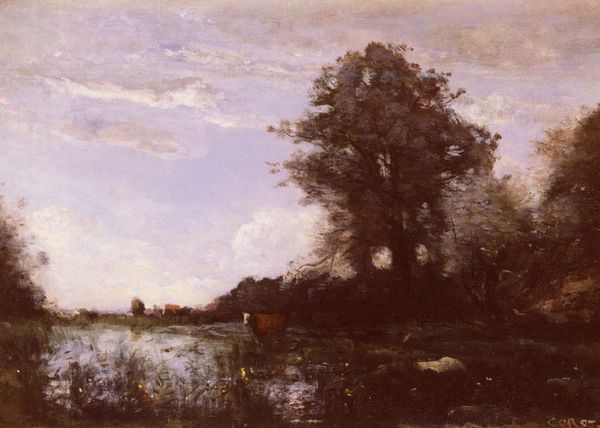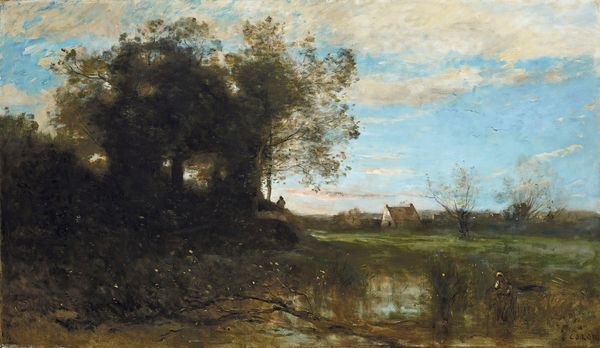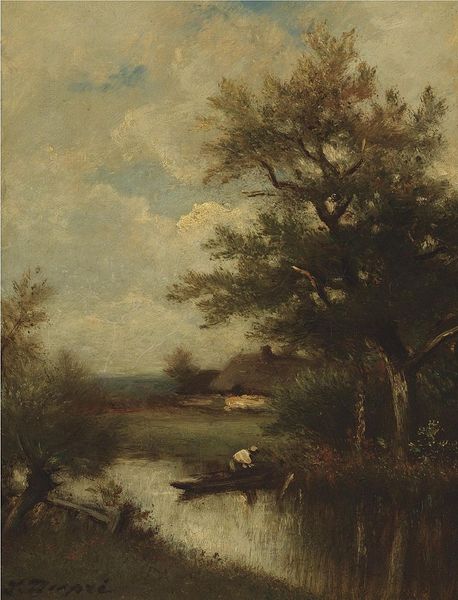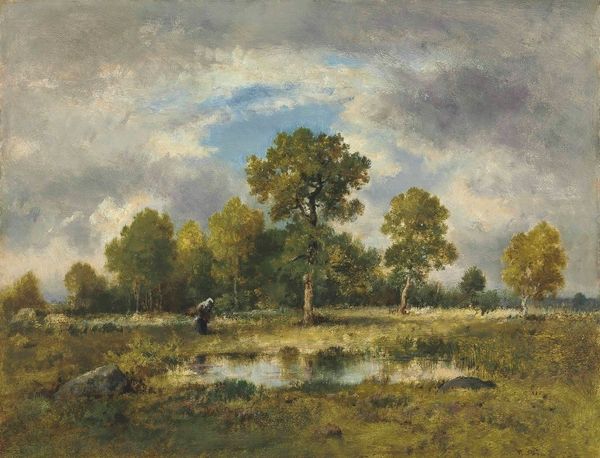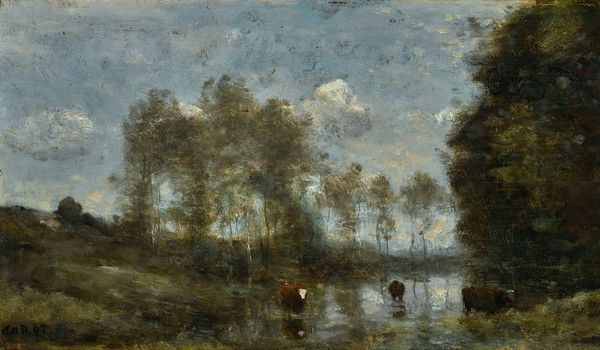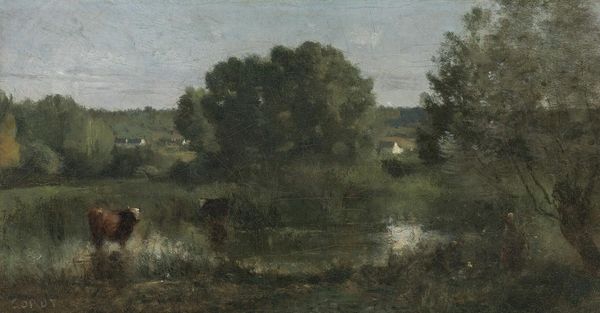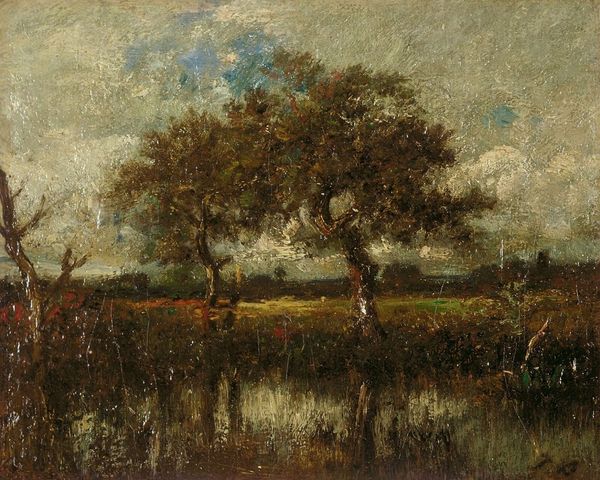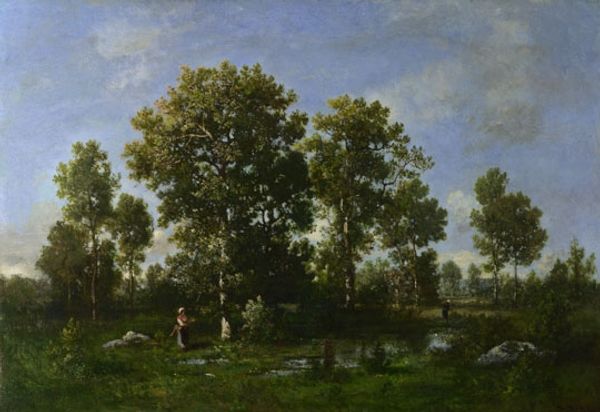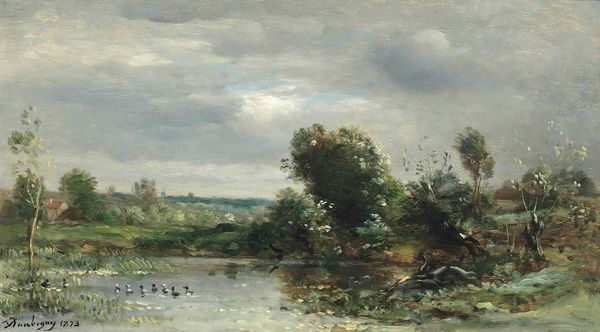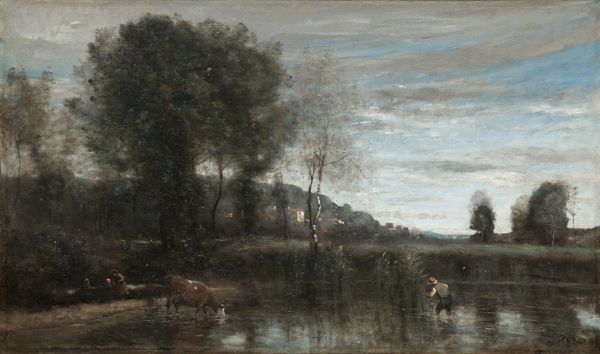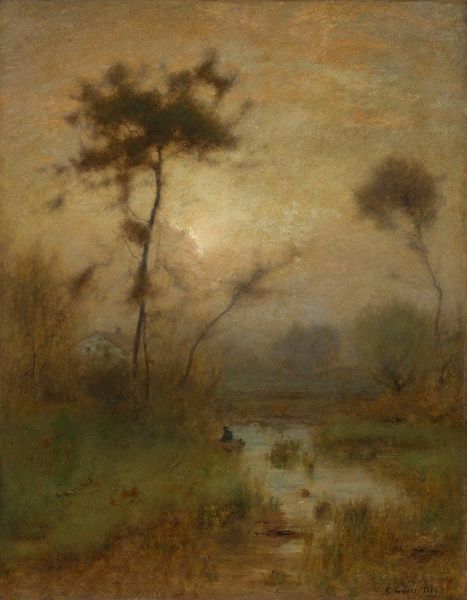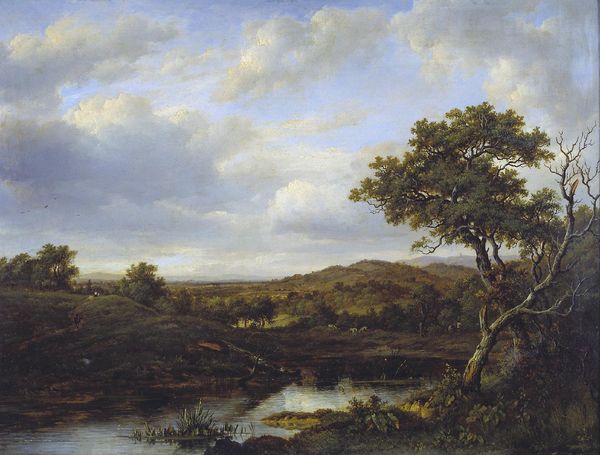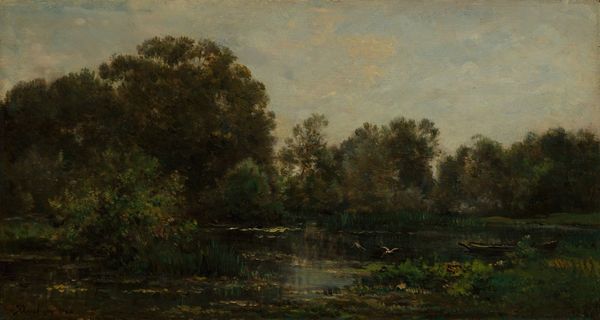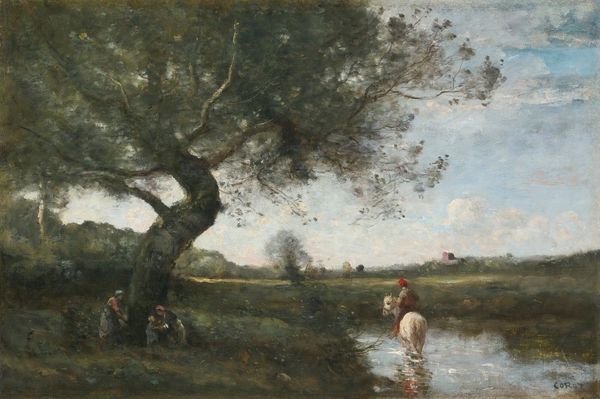
plein-air, oil-paint
#
impressionism
#
plein-air
#
oil-paint
#
landscape
#
impressionist landscape
#
oil painting
#
romanticism
#
realism
Copyright: Public domain
Curator: Looking at this painting, there’s a striking melancholy about it. The colors are muted, the scene feels quiet. What are your thoughts? Editor: That somber mood definitely speaks to the Romantic sensibilities informing this work. The play of light, albeit subtle, evokes a specific emotional state linked to that era. This oil painting is called "Oak on the Pond," attributed to Jules Dupré, a French artist working around the time of the Barbizon school. Curator: Considering that Dupre was associated with the Barbizon School and worked "en plein air," do you think there is a message around social identity here? Was he also attempting to highlight a return to simpler pastoral labor and land ownership in a way? Editor: I can see that perspective. The solitary oak, acting as a symbol of steadfastness, alongside the simple wooden bridge, could suggest enduring qualities rooted in the land. Considering this bridge acts as a liminal zone between two worlds: the known and unknown. This speaks to a constant cycle and an overcoming in line with the idea of perseverance you are raising. Curator: And in that context, it challenges a rising post-enlightenment notion of class and ownership in France, highlighting a working class's perseverance through exploitation. Perhaps this is an attempt to evoke a more 'traditional' French identity. Editor: I wonder if the lack of clear detail in the background contributes. The haziness could signify an idealized vision of rural life and the past or a sense of something that is beyond comprehension or has not been recorded in the pages of history, and may never be known. It is also the landscape itself becoming more present and asserting an active presence, shifting power from an external ruling source towards nature. Curator: It really forces you to contend with questions of history and cultural narrative. What feels stable and immutable? How has that stability been enforced and on whom? What visual codes allow the illusion of cultural dominance? Editor: It’s powerful how one tree rendered in oil paint can provoke such questions! Thank you. Curator: Thanks to you too! It enriches the experience greatly.
Comments
No comments
Be the first to comment and join the conversation on the ultimate creative platform.
